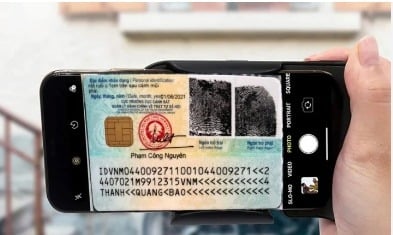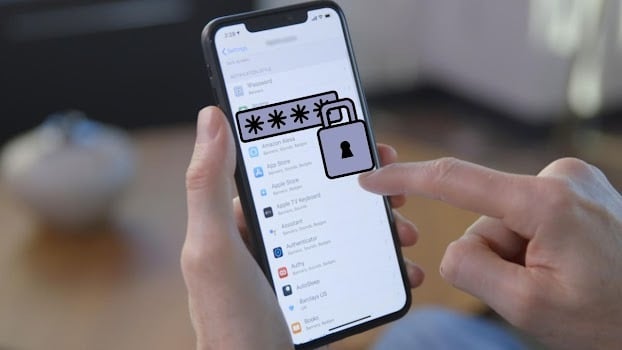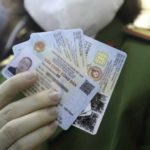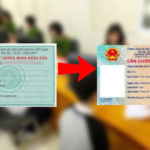Here are four types of photos you shouldn’t store on your phone:
Account Password Photos
For those who are forgetful, it may seem convenient to take a picture of your bank account or other passwords and store them on your phone.
However, this poses a significant risk. If your phone is lost or falls into the wrong hands, all your account passwords could be compromised, leading to potential financial loss and personal information theft.
ID Card Photos
ID cards are important documents, and each number is unique to an individual. For convenience, many people take a picture of their ID card and keep it on their phone.
However, if your phone is lost or the photo is leaked, your personal information can be exposed. Malicious individuals can use this information to cause irreparable damage. Therefore, it’s best not to store these photos on your device.

ID cards are crucial documents, and each number is unique to the individual.
Bank Card Photos
When you register for a bank card, you typically need to provide your ID card and mobile phone number, so your bank card is equally important.
Do not store photos of your bank card on your phone, as if your device is lost or accessed by malicious individuals, they could use the image to withdraw money from your account, resulting in significant financial loss.
Driver’s License Photos
Many people enjoy taking pictures of their driver’s license and keeping it on their phone, especially those who have recently obtained their license and want to share their excitement with friends or on social media.

People often take photos of their driver’s licenses and store them on their phones, especially new drivers eager to share their accomplishment.
However, driver’s licenses contain sensitive information such as your name, age, and address. If this photo is exposed, your personal information could be at risk, leading to potential identity theft and other issues if misused.
The Ultimate Guide to Upgrading Your ID Card: From Barcode to Chip-Enabled CCCD
“CCCD with embedded chips has captured the attention of many due to its convenience and modernity. In this article, we will delve into the process of upgrading from the old barcode-based CMND and CCCD to the newest CCCD with a chip. Stay tuned as we unravel everything you need to know about this exciting transition.”
The Ultimate Guide to CCCD Chip Technology: Everything You Need to Know
“The latest talk of the town among Vietnamese is the new identity cards with embedded chips. This new development has sparked a flurry of questions and concerns among the populace. This article aims to provide comprehensive answers to all queries related to these new chip-enabled citizen identification cards.”
4 Important Tips for Individuals with the Old 9-Digit Vietnamese ID Card Transitioning to the New Smart Chip-Enabled ID Card
“With the recent rush to upgrade from the old ID card to the new chip-enabled Citizen Identification Card, it’s crucial to be aware of the essential considerations. Are you informed about the key aspects of this transition from the 9-digit Citizen Identification Number to the new smart card? You won’t want to miss out on this informative article, so stay tuned to ensure a smooth and hassle-free transition to your new CCCD!”
“Don’t Forget to Verify: A Quick Check of These Details Can Save You Future Hassles When You Receive Your CCCD”
Receiving your CCCD is an important step, but what happens when you discover inaccuracies? It’s crucial to take action and verify specific details to prevent any potential issues down the line. Our comprehensive guide will ensure you know exactly what to look for, providing you with the knowledge to confidently tackle any discrepancies and maintain your peace of mind.





































